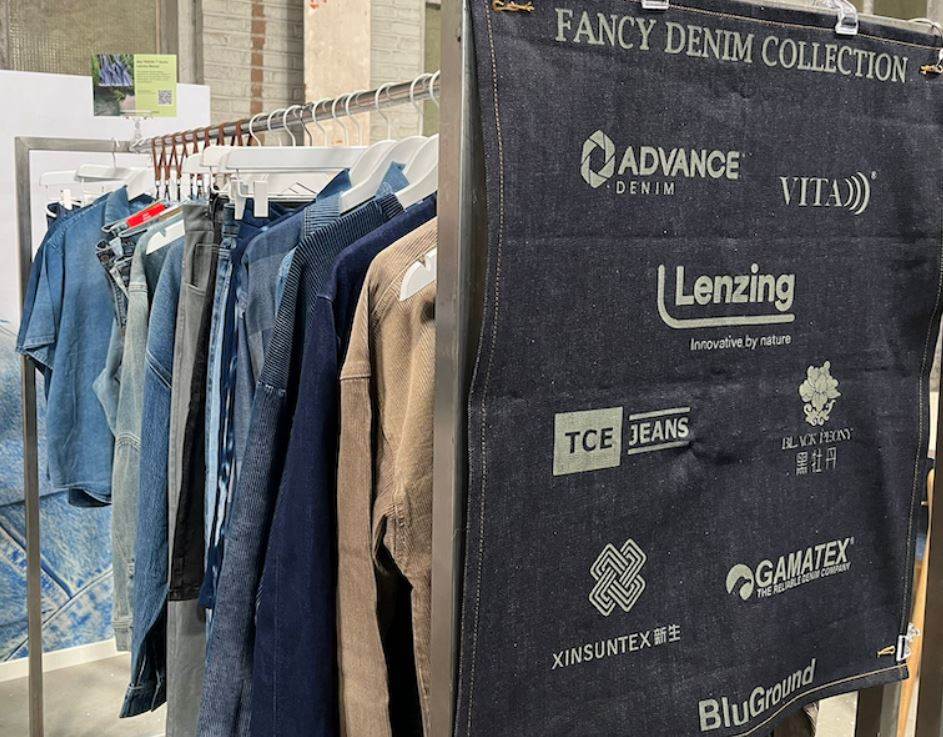Lenzing challenges mills to ‘think outside the box’

Austrian fibre supplier Lenzing has outlined its latest developments, including a collection of “fancy denims”; a partnership with Japanese mill Kaihara and Asahi Kasei; and a laundry manual aimed at helping technicians wash and finish Lenzing fibre-containing fabrics and garments.
Tuncay Kiliçkan, Lenzing’s head of business development for denim, also told Inside Denim how the new push towards softer fabrics is creating more demand for its fibres. “We are having more exposure thanks to this soft trend. Not drapey, but soft,” he said. “It is one of the main drivers in the market at the moment.”
Throwing down the gauntlet to mills to “think outside the box” and create a fabric free from the constraints of regular 3x1 denims, Lenzing tasked Advance Denim, Black Peony, BluGround, Gamatex, TCE, Vita Textile, and Xinsuntex to develop the Fancy Denim Collection.
The result includes jacquard weaves, dobby and knit-like constructions; piece-dyed indigo jerseys, patchwork-style pieces, denim with metallic threads and a range of prints.
“The market can be quite repetitive, so there aren’t many crazy developments that can move fashion forward,” said Mr Kiliçkan. “For the Fancy Denim collection, we wanted to show what else can be achieved: knit-feeling denims, Batik, denim looks but with reactive dyes, corduroy and technical fabrics with partial transparency, for instance.”
The Laundry Manual, available to Lenzing’s technical partners for free, focuses on the fibres’ compatibility with ozone, nebulisation and laser machines. “We are solutions partner, we research how our fibres react with various new chemicals and treatments to help people work with it correctly,” he added.
Lenzing also recently unveiled a collaboration with Kaihara and Roica by Asahi Kasei: a “circular” stretch denim collection, Saisei, using materials from recycled content, including Lenzing’s Ecovero with Refibra technology, which incorporates textile waste as a feedstock.










